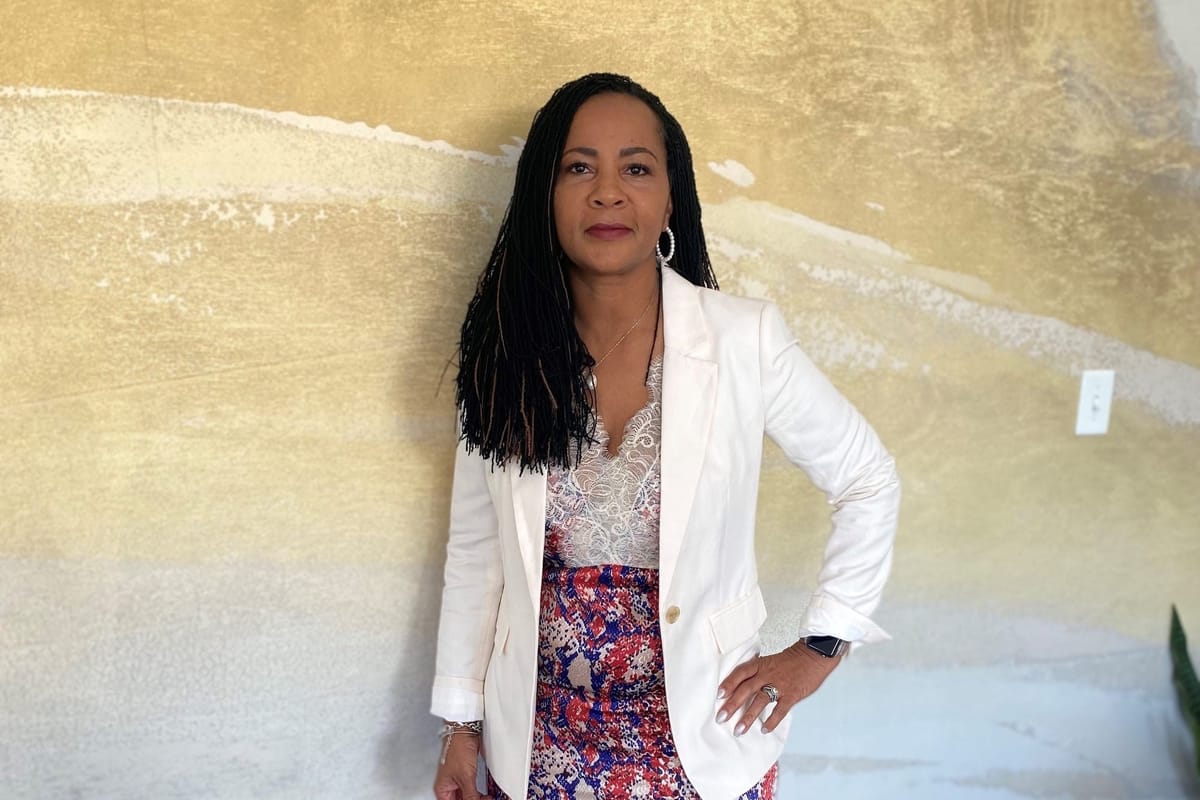
In 2013, Cecilia Robinson-Woods, a fourth-generation educator, returned home to Oklahoma City to become the superintendent of a then-struggling Millwood Public School District. Under her leadership, Millwood Public Schools has become one of the first “Charter Conversion” schools in the state. Because of this distinction from the state, Millwood Public Schools is allowed to utilize charter law to advance its mission as a public school, which is to ensure that students are prepared to be champions in the classroom, in the community and in life. Robinson-Woods was also recently named one of The Journal Record’s “50 Women Making a Difference.”
She was named the Women of Color “Educator of the Year” in 2015 and the Women of Color “Woman of the Year” in 2020. Robinson-Woods currently serves on the State Superintendents Advisory Board, MAPS 3 Citizens Advisory Council, James Mission Board, OSSAA Board, Executive Board of USSA and OASA and the Girl Scouts of Western Oklahoma Board, and as the co-chair for the Governor’s Oklahoma Workforce Youth Council. She is also a graduate of Leadership Oklahoma City and serves as a community director for the OU Medicine, Inc. board.
Upon arriving at Millwood, job one was establishing a solid sense of community for her students. “The great news about Millwood is it really is my dream job,” she says. “I get to build a community … When I came in, we were hemorrhaging. We were losing enrollment. Our buildings were falling down around us; the community didn't trust us. And so in my nine years, I've set out first to build community trust to tell people that we are who we say we are.” From there. It’s been about teaching kids how to learn. “Can they carry on a conversation? Can they clearly state their ideas? Can they solve a problem? Can they think critically? Can they work with others? That's what I'm worried about,” Robinson-Woods says.
She understands, better than most, that this sense of familiarity and safety are the foundation upon which her students’ academic and other successes must rest. It’s something she was not afforded as a child. “We were bused every year in elementary school, because I grew up in Oklahoma City Public Schools at a time when desegregation was the law. If you were Black, they put you on a bus and they brought you to a white school. We didn't even go to school with the same kids that lived right across the street from us growing up. My parents lived in the same house for 48 years, and I went to five different elementary schools, and my parents had never moved. And so being a part of a community, and just feeling like you belong, was a big part of just what I knew I wanted to do,” she says. Finally, in middle school, she spent three years straight in the same school, with the same kids, and it felt transformative.
One other thing about Robinson-Woods: She’s always preferred to be the boss. “I always was. My friends will tell me, I was always in charge. That's just me. Wherever I go, I'm in charge and my passion was always building communities.” She wasn’t sure how that passion would manifest, but it was always there.
Her parents wanted her to become a businesswoman. They wanted her to go into something perhaps more lucrative than education. “My parents wanted me to go into business just because smart kids don't go into teaching. Right? They go into something that'll make them some money.” When it came time for college, Robinson-Woods dutifully majored in business. But, as she says, she “absolutely hated it.” By the middle of her sophomore year, she knew she had to make a change. “I called my parents and I said, ‘I'm going to education, but I'm not, I'm not going to stay a teacher, I'm going to become a principal.’ And I thought if I can be in charge of a school, I can build my own community.” She finished undergrad, started teaching and went back to school for a master’s degree, completing it as soon as she could.
Then, Cupid stepped in. “I met a man who was from the East Coast and we got married and he moved me out east.” The couple landed in Hartford, Connecticut, and Robinson-Woods interviewed for a position teaching fourth grade. Two days later, her principal came back after having looked over her resume. “She said, ‘You're a principal,’ followed by ‘Your interview was better than any of my assistant principal interviews. I want you to be my assistant principal.’” And her destiny was sealed.
From Connecticut, her career took her back west, to Kansas City, Tulsa and finally back to Oklahoma City. She’d been a Blue Ribbon principal in Hartford, a trouble-shooting expert in turning schools around in Kansas City, an associate superintendent and early childhood expert in Tulsa — “Not by choice, but honestly because I was the only woman on the cabinet and I had a two-year-old. So I was the early childhood specialist,” she says, laughing.
Her end goal? To show her students that there are career paths available to them that they may never have realized. “A lot of times it's not that our kids don't have the ability or even the will, they just don't know these jobs exist. You can’t decide to be something that you don't know exists. That's the goal. And, and in fairness, you know, if you speak to male engineers, white male engineers, for most of them their dad was an engineer or the grandfather was an engineer, you know what I'm saying? It's a family business. You rarely find just one doctor in a family. That first doctor in the family won't be the last doctor, because now the next generation knows they could be a doctor.”

